Current Team

Adrián McMahon
Translator, Spanish Language Team
is an undergraduate student at Johns Hopkins University studying Romance Languages. His research interests include historical and medical translation as well as language acquisition. In his free time, Adrián enjoys hiking, skiing, traveling, and eating cream cheese bagels!

Alex Gil
Technical Consultant, LifexCode Digital Strategist
is Senior Lecturer II and Associate Research Faculty of Digital Humanities in the Department of Spanish and Portuguese at Yale University, where he teaches introductory and advanced courses in digital humanities, and runs project-based learning and collective research initiatives. Before joining Yale, Alex served for ten years as Digital Scholarship Librarian at Columbia University, where he co-created and nurtured the Butler Studio and the Group for Experimental Methods in Humanistic Research. His research interests include Caribbean culture and history, digital humanities and technology design for different infrastructural and socio-economic environments, and the ownership and material extent of the cultural and scholarly record. He is currently senior editor of archipelagos journal, co-organizer of The Caribbean Digital annual conference, and co-principal investigator of the Caribbean Digital Scholarship Collective, funded by the Andrew W. Mellon foundation.
Over the past decade, he has been a prolific producer and contributing team member of many recognized digital humanities projects and scholarly software, including Torn Apart/Separados, In The Same Boats and (Un)Silencing Slavery. His scholarly articles have appeared in several essay collections and refereed journals around the world, including Genesis (France), the Canadian Review of Comparative Literature, and Revista de Investigaciones Literarias y Culturales (Venezuela). His forthcoming edition and translation of the lost, original version of Aimé Césaire’s “…..Et les chiens se taisaient” is forthcoming from Duke Press.
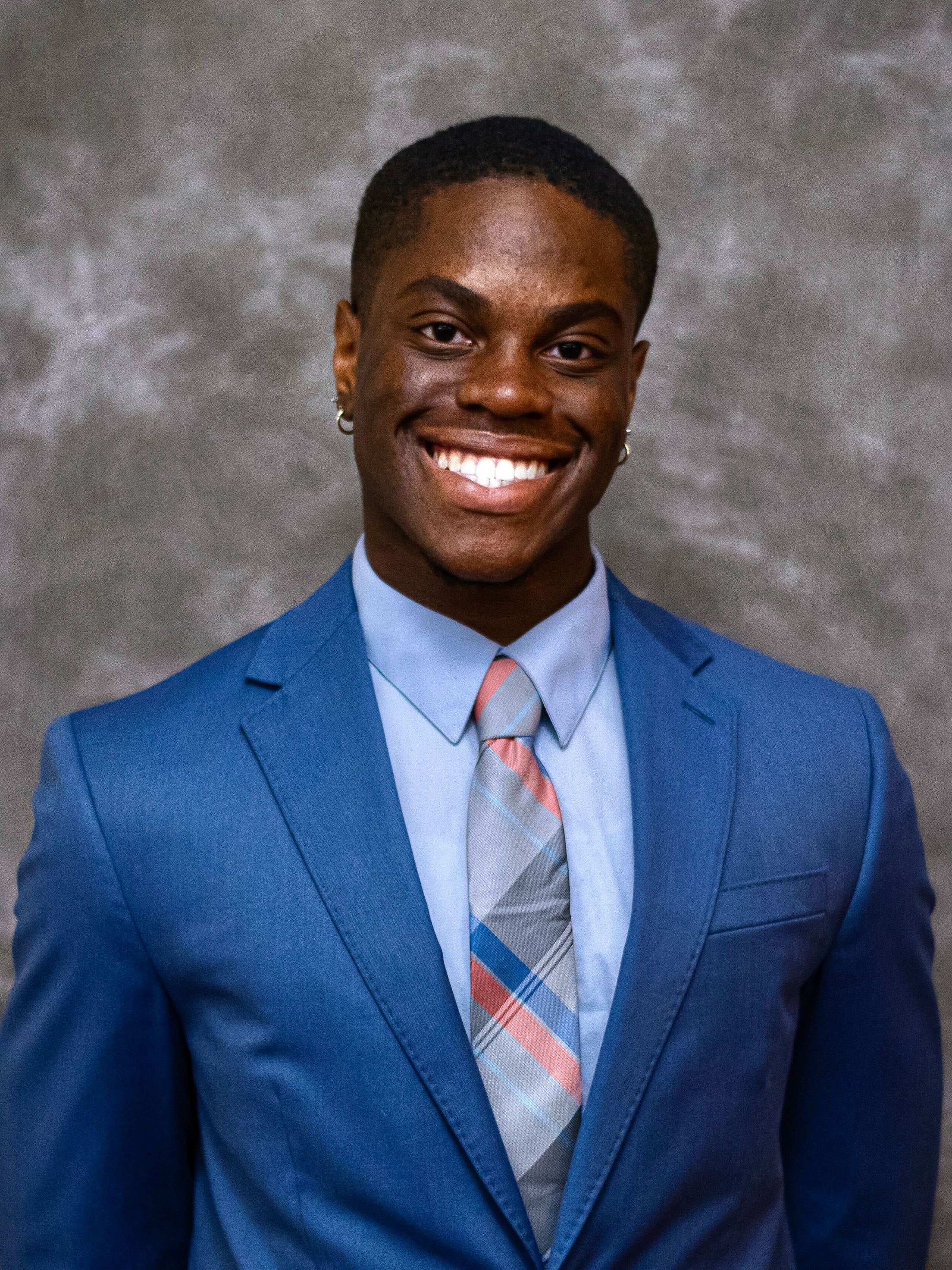
Akosa Obianwu
Assistant Editor, Spanish Language Team
is a Master of Public Health in Global Health Candidate at The George Washington University and holds a Bachelor of Arts in Public Health Studies & Spanish from The Johns Hopkins University from Prince George’s County, MD by way of Anambra State, Nigeria. He is an Assistant Editor for Keywords for Black Louisiana and contributes to the generation of stories and translated Spanish documents for the project. Akosa works to amplify the voices and histories of underrepresented communities through his demonstrated leadership and productive teamwork in healthcare, education, community engagement, and research settings, being featured in the Baltimore Banner, NPR, and the Washington Post. His research interests include Black Diaspora studies, Western and African politics, as well as gender and sexuality studies. As a young professional who endeavors to grow in clinical and community health industries, Akosa works to strengthen program outcomes and stakeholder engagement by investing in community and cultural wealth through his contributions to organizations like Elev8 Baltimore, the Johns Hopkins University Center for Diversity & Inclusion, and the Center for Vaccine Development and Global Health at the University of Maryland, Baltimore School of Medicine.
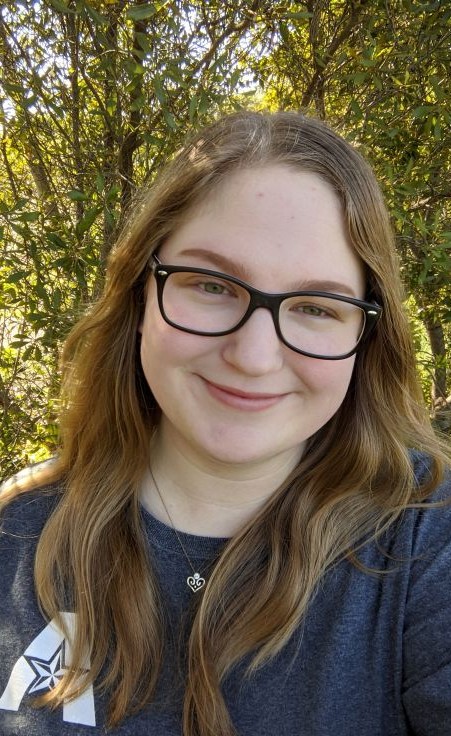
Alex Sanchez
Translator, Spanish Language Team, Digital Assistant for Editorial Markup
is a doctoral student in the Department of History at Johns Hopkins University. She is a translator and digital assistant for the Keywords for Black Louisiana project. Alex studies the nineteenth and twentieth century Spanish Caribbean, with emphasis on Puerto Rico, and is interested in questions of healing knowledge and practices, race, and public health. She received her BA in History and BA in Spanish from the University of Texas at Arlington and MA in History from Vanderbilt University.

Angie Vidal Hernandez
Translator, Spanish Language Team
is a second-year Public Health Studies major at Johns Hopkins University. She is passionate about addressing health inequities, particularly in reproductive and oral health, through research, advocacy, and community engagement.
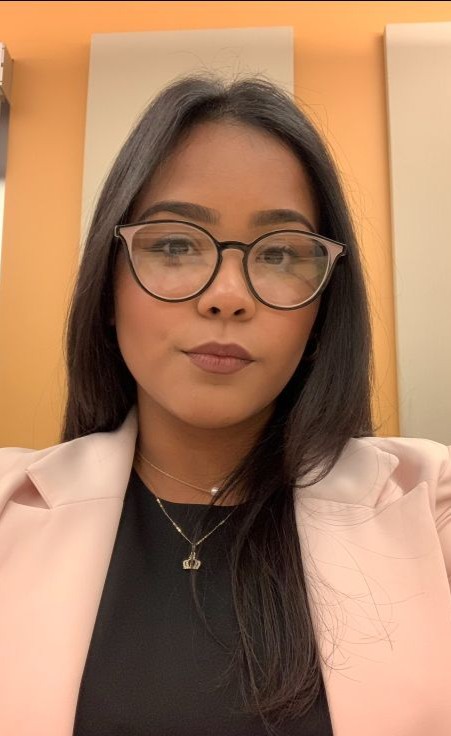
Ashley Reynaga
Assistant Editor, Spanish Language Team
is an alum of Dillard University where she graduated with a bachelors in Urban Studies and Public Policy she will be attending the University of New Orleans majoring in Urban Studies and Regional Planning with a specialization in Environmental and Hazard Mitigation Planning. She is an Assistant Editor for Keywords for Black Louisiana’s Spanish Team. She is a Ronald E. McNair Scholar, with research in “Enhancing Hurricane Preparedness through Geospatial Analysis: A Study in New Orleans.” She intends to use geospatial analysis to begin city planning and incorporate aspects of public health into future research to deeply explore marginalized populations and the effectiveness of current emergency plans.
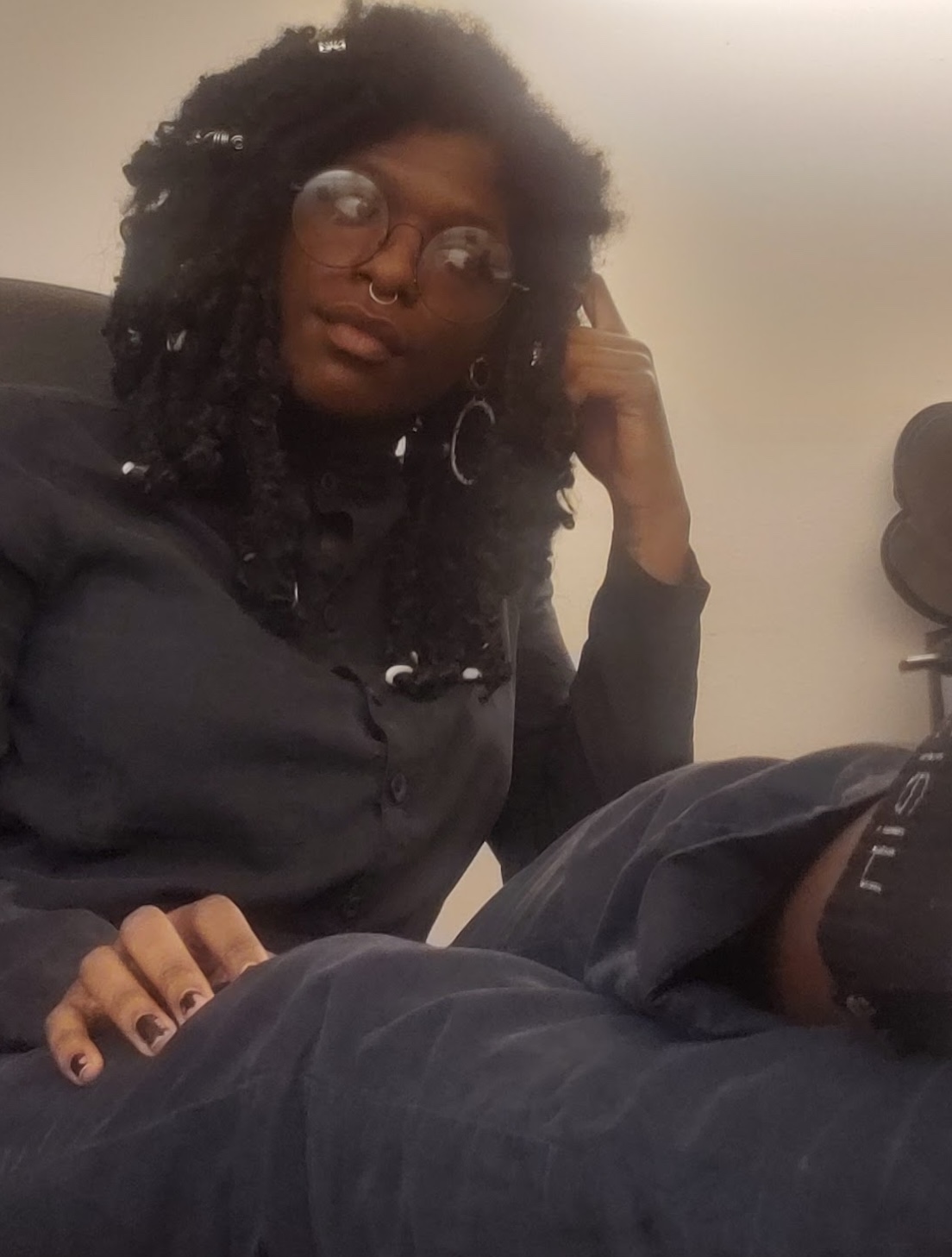
Chenise Calhoun
Transcriber and Translator, French Langauge Team
is a 6th year PhD candidate in the French studies program at Tulane University. Her dissertation examines contemporary Moroccan cultural memory as it pertains to racialized peoples as well as historical and cultural ties to the Sahara, Sahel and West Africa. Chenise is a member on the board of Louisiana Museum of African American History, a nonprofit educational, historical and research organization tasked with collecting, preserving and documenting the true history of people of African descent in Louisiana. She is a Translation Lab member with Diaspora Solidarities Lab, translating texts written by African and Afro-diasporic thinkers and creatives into non-colonial African languages [Swahili, Twi, Wolof] to communicate knowledge and ideas in the languages of its people and create deep connections with community. Additionally she is a graduate member of the Center for African Mediterranean Studies at Arizona State University.
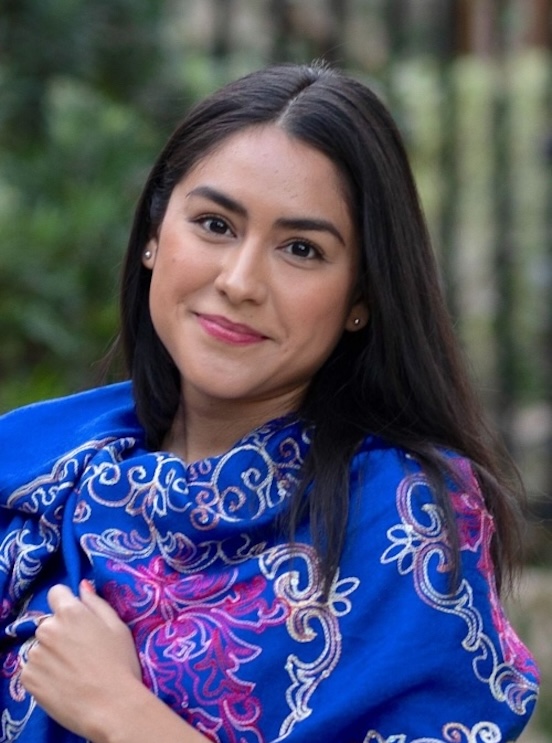
Christina Villarreal
Associate Spanish Editor
is an Assistant Professor of History at the University of Texas, El Paso. Her research focuses on the Texas-Louisiana borderlands, early America, fugitives from slavery, desertion, and sanctuary. Villarreal has received support for her research from the Ford Foundation, the Fulbright Program, The Institute for Citizens & Scholars, and the SSRC-Mellon Mays Program. In 2021-2022, Villarreal was a research Fellow at the Clements Center for Southwest Studies at Southern Methodist University where she worked on her forthcoming manuscript, “Imperial Fugitives: Apostates, Deserters, and Runaways in Eighteenth-Century Texas and Louisiana Borderlands, 1714-1803.”
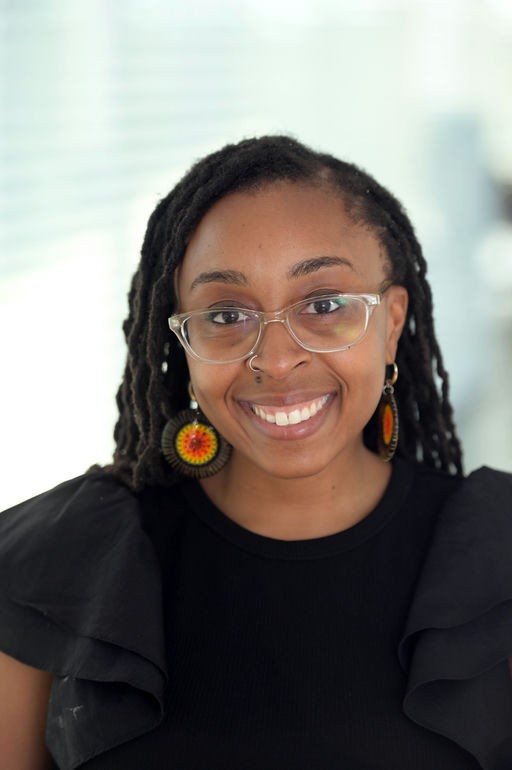
Cyntoya McCall
Community Engagement Fellow and Co-Project Manager
Cyntoya McCall, from Niles, MI, received her BA from Michigan State University, where she studied Spanish (Secondary Education) with a minor in Sociology. Since then, she has primarily worked in education, teaching Spanish and mentoring students. Cyntoya is a two-time recipient of the Fulbright ETA scholarship, and a former Resident Director of a study abroad program in Cali, Colombia. While there, she helped design and led a program that examines race, ethnicity, and identity, while centering the wisdom, history, and culture of Afro-Colombians. From living and working in Black communities in the U.S., Colombia, and Ecuador for over a decade, she developed a passion for connecting people from diverse communities of the African diaspora through language education. Cyntoya is currently pursuing her MA at The Roger Thayer Stone Center for Latin American Studies Program at Tulane University. Her research interests include the formation and expressions of identity, particularly Black identities, in the Latin American context.
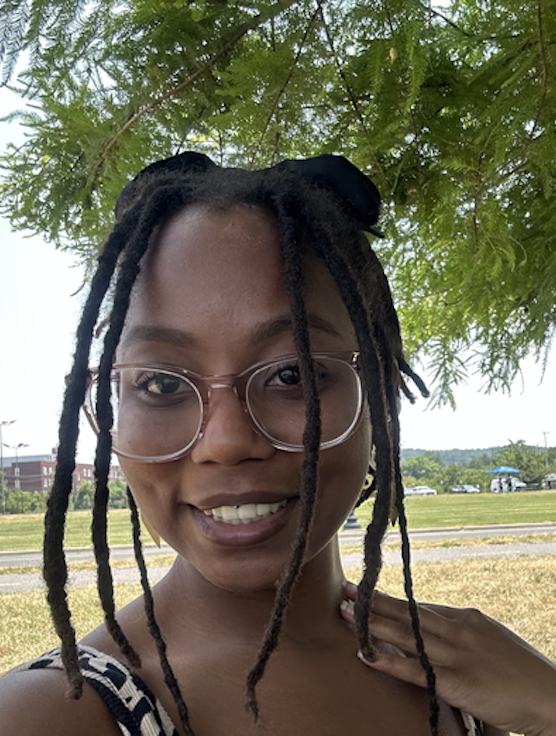
Daija Yisrael
Assistant Editor, French Language Team
is a globally focused social scientist committed to leveraging historical narratives to navigate public policy and shape equitable futures. She is entering her final year as a Master of International Development Policy candidate at Georgetown University’s McCourt School of Public Policy. Her research interests center on economic empowerment through education, the creative industries, and the ethical provision of public goods. She is particularly focused on how digitization is shaping each of these areas.
Daija holds a Bachelor of Arts in Political Science with minors in French and Anthropology from Tulane University. While at Tulane, she was a Tenenbaum Scholar under the mentorship of Dr. Guadalupe García, completing a seminar on Public Monuments and Memory and independent research on the Haitian Revolution. She began her transcription career as an Undergraduate Africana Studies Fellow under the mentorship of Dr. Laura Rosanne Adderley who introduced her to the world of transcription, digital archival work, and the Keywords for Black Louisiana project. During her fellowship, Daija worked on 17th century Louisiana documents in both English and French. She now serves as the French Assistant Editor for Keywords, where she collaborates with the French team on transcribing and translating 18th-century Louisiana documents.
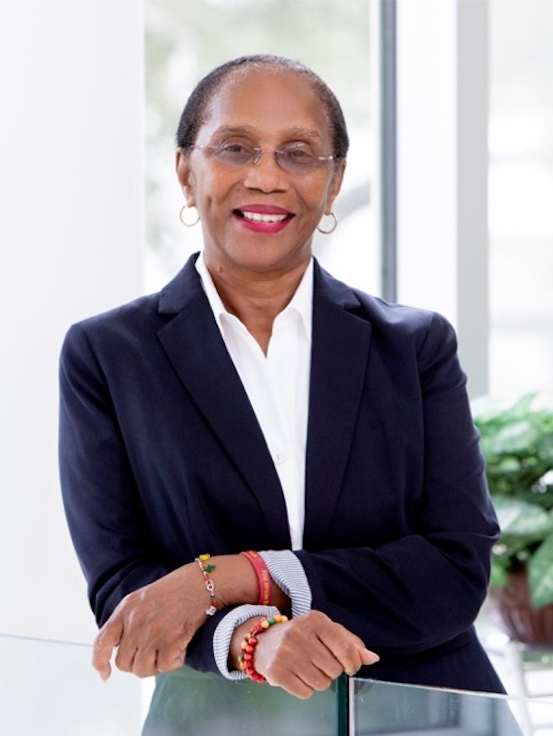
Eva Baham
Community, Ethics, and Accountability Advisor
is a former Assistant Professor of history at Dillard University in New Orleans and an Associate Professor at Southern University in Baton Rouge. She focuses on social and cultural histories, primarily on Louisiana’s African American communities. In doing so, she meshes historical and genealogical methods. Her work may best be described as historical eclecticism, as she studies and researches differing aspects of culture and their inter-relationships and inter-connections. Her most recent publication, “A Genealogist and a Historian Walk into the Archives: Search for My People in Louisiana,” published in Louisiana History: The Journal of the Louisiana Historical Association. The article received “The President’s Memorial Award” for the best article published in the 2022 Journal.
Veritenews.org recently published her article, “Secret, Subtle, Surreptitious Resistance was a Weapon for Enslaved Women.” Publications also include the text, African Americans in Covington (Louisiana); a book chapter, “The Grand Rallying Point: Methodists, Congregationalists, Baptists, Episcopalians, and Jews Forge a Lesson and a Legacy in Interfaith Cooperation;” journal articles, “In the Moral Vineyard to Dispel the Darkness of Ignorance: African American Baptists in Louisiana;” and “Searching for Duplin and Zoe Amid the Contradictions of Being Slave and Free.” She has consulted on two documentaries on African Americans in Louisiana, and the soon-to-be released, “Gulfside Assembly: A 100-Year Chautauqua Retreat for Blacks on the Gulf Coast of Mississippi”. Prior to her appointment at Dillard University, Dr. Baham taught at Southern University, Baton Rouge, as an associate professor of history. She teaches world and United States history, and the African diaspora. She also conducts genealogical research of south Louisiana families under the umbrella of her organization, Université sans murs. Baham will also be presented at the 2022 AHA on a panel organized by Johnson and with participation from Research Team Leader Villarreal titled “ Black Life in Spanish New Orleans: New Research and Insights.” She is a founding member of the Charles Deslondes Branch (New Orleans) of the Association for the Study of African-American History.
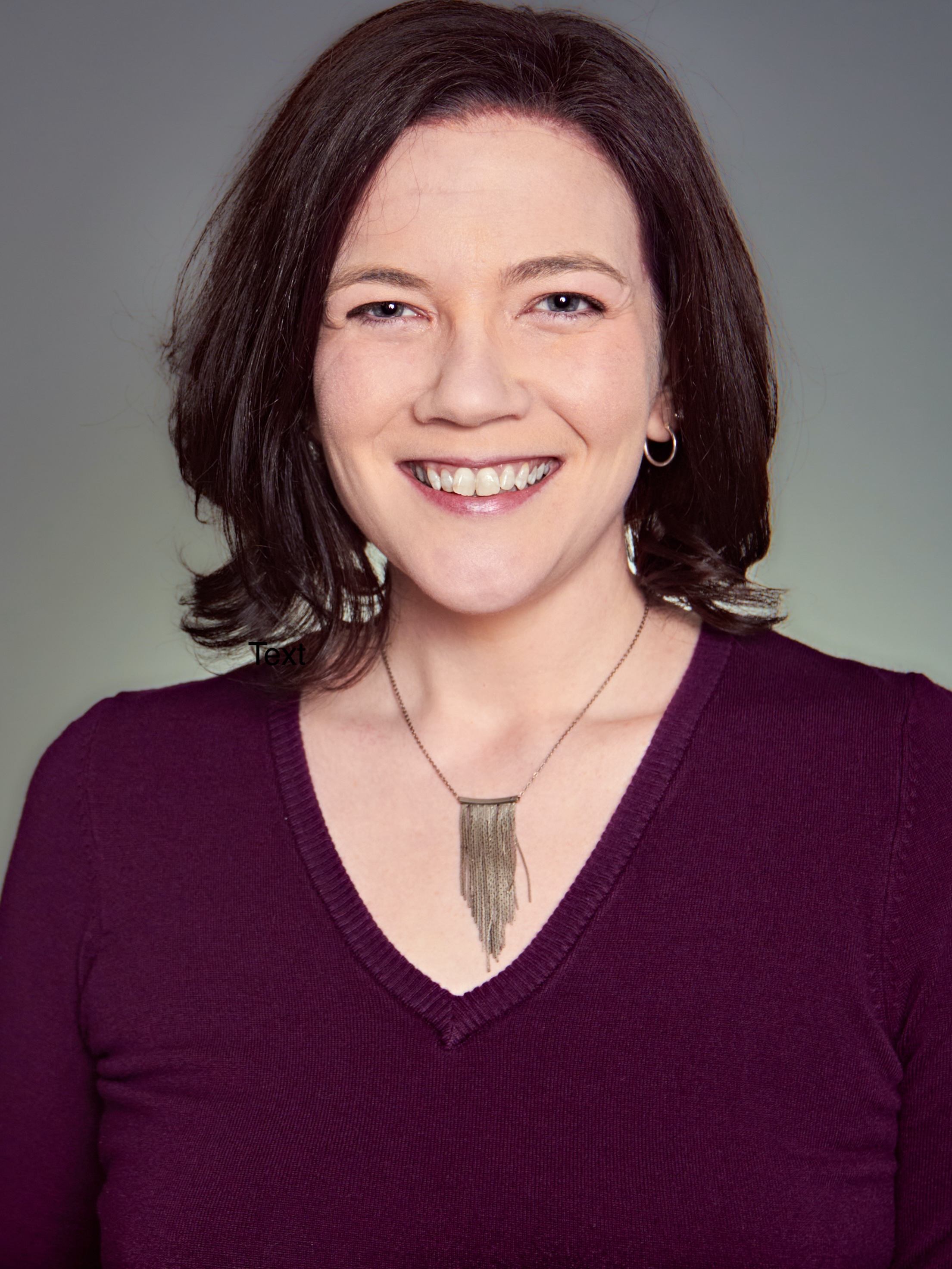
Emily McGinn
Technical Consultant, Digital Infrastructure Team
is a Digital Humanities specialist with the Sheridan Libraries at Johns Hopkins University. She serves as a digital consultant for the Keywords team. Previously, she was the Humanities Computing Curriculum Specialist at Princeton University with the Center for Digital Humanities and was the Head of Digital Humanities at the University of Georgia in a role that included advising, consulting and managing new digital projects, and outreach. More broadly, she works with researchers to match digital methods and platforms with their skills and helps them to reach their project’s goals. She holds a PhD in Comparative Literature and has been an active member of the DH community.
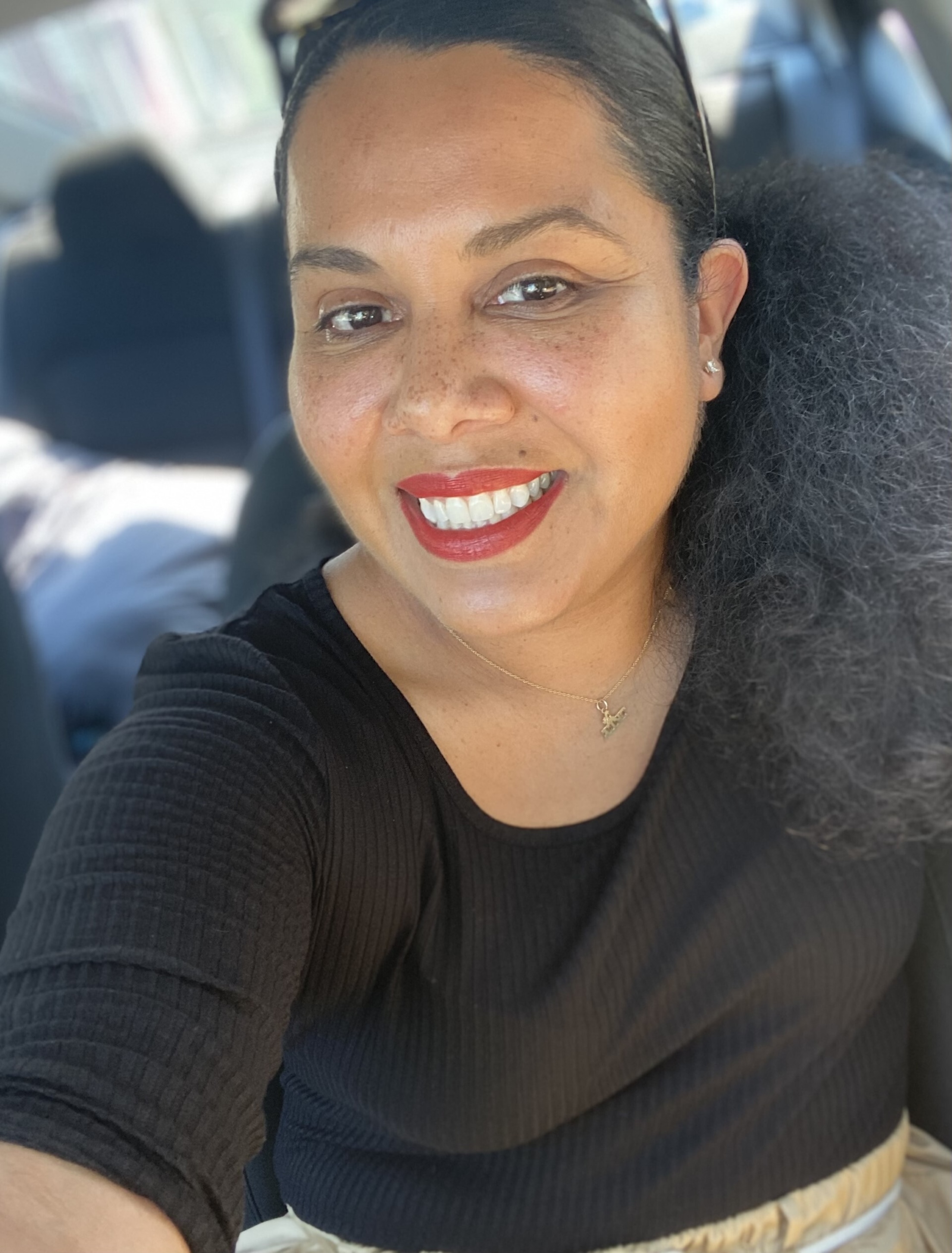
Guadalupe García
Managing Editor
is an Associate Professor of Urban Studies & Planning at the University of California, San Diego, and specializes in the history of cities and colonialism in Latin America and the Caribbean. Her research examines the intersections of colonialism, empire, and urban space and focuses on free and enslaved Black peoples in Havana, Cuba. Dr. García’s work has appeared in the Journal of Latin American Studies and Cultural Studies, and she has received multiple fellowships and awards, including a Distinguished Fellowship at the CUNY Grad Center’s Advanced Research Collaborative and Research & Digital Fellowships at the John Carter Brown Library at Brown University in Providence, Rhode Island. She has also held the Transatlantic Research Fellowship at the University of Warwick in the UK. Dr. García is currently at work on her second book project, which explores the use of digital humanities to interrogate how space, scale, and mapping can be used to counter the logics of the archive and help to expand our contemporary understanding of cities. Her work also explores Cuba and its history across time and space.

Holly Nelson
Transcriber and Translator, French Language Team
is a doctoral student and Rackham Merit Fellow at the University of Michigan, pursuing a joint Ph.D. in English Literature and History. She is a Transcriber/Translator for Keywords for Black Louisiana. Her research interests include performance studies, the modernist novel, dance and movement, the Harlem Renaissance, and James Joyce studies. Holly is a recent graduate of Johns Hopkins University (Phi Beta Kappa), where she received a B.A. in English, History, and Medicine, Science, and the Humanities and researched twentieth-century performance as a Woodrow Wilson Research Fellow. In 2023, Holly received JHU’s Arthur Kouguell History Prize for her thesis on the Dance Theatre of Harlem, JHU’s Michel-Rolph Trouillot Anthropology Prize for her work on Zora Neale Hurston’s playwriting, and the Dante Society of America’s annual Dante Prize for the best undergraduate essay in North America on the life and/or work of Dante Alighieri. At U-M, Holly is a Research Associate at the Detroit River Story Lab and teaches a writing course on the literary and performance cultures of the 1920s.
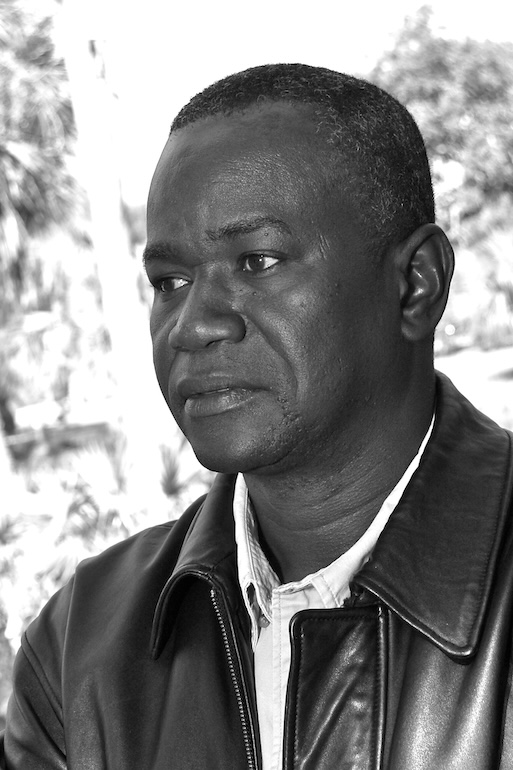
Ibrahima Seck
Subject Matter Expert, Editorial Team
is a member of the Department of History at the University Cheikh Anta Diop of Dakar (UCAD), Senegal. Dr. Seck is now holding the position of Director of Research at the Whitney Plantation Slavery Museum located in St. John the Baptist Parish, Louisiana. He is the author of a book on this historic site, entitled Bouki fait Gombo: A History of the Slave Community of Habitation Haydel (Whitney Plantation) Louisiana, 1750-1860 (University of New Orleans Press, 2014). His research is mostly devoted to the historical and cultural links between West Africa and Louisiana with a special interest for religious beliefs, music, foodways, and miscellaneous aspects of culture.
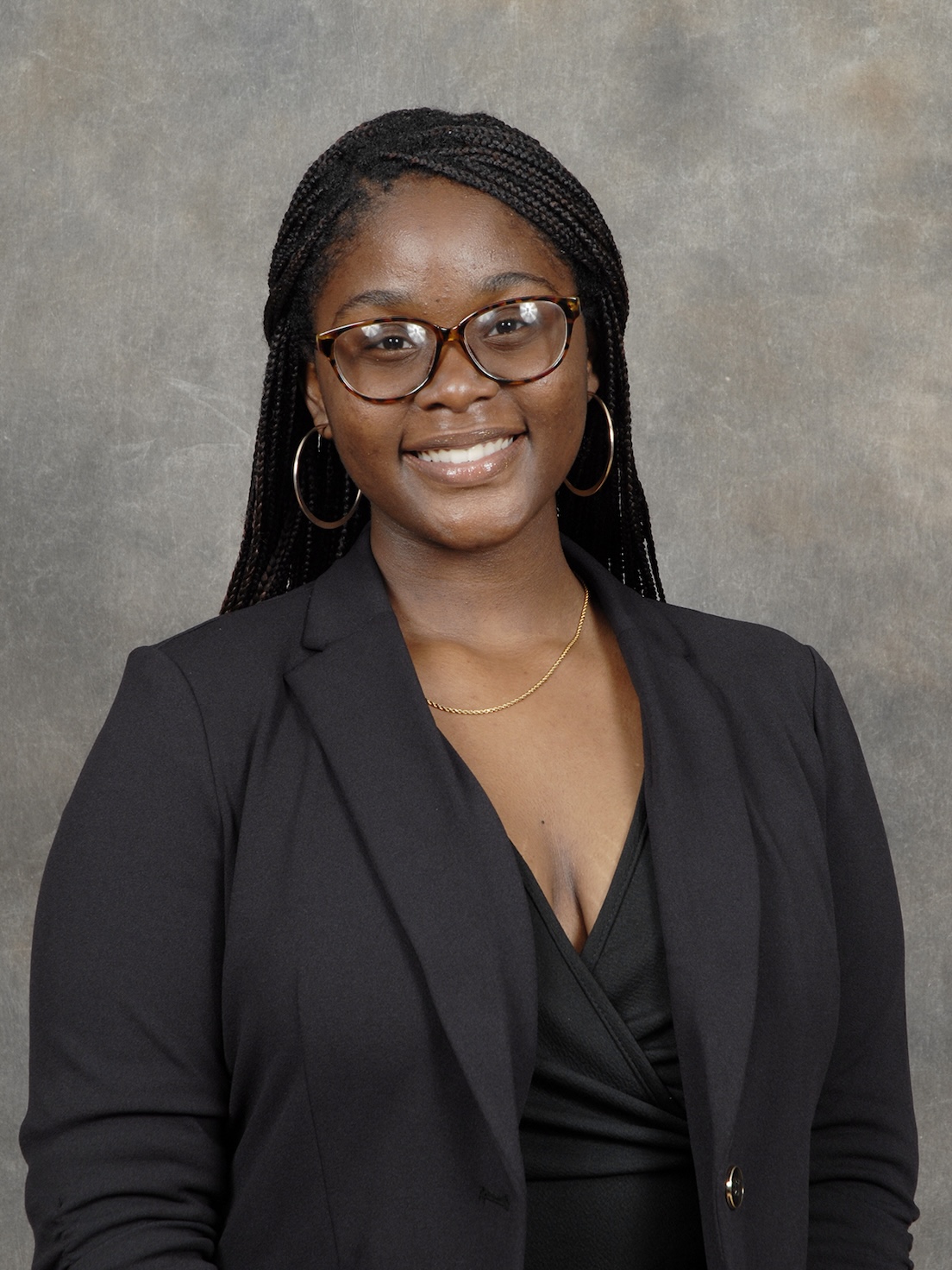
Jamya Davis
Digital Designer
is a graduate of the illustrious Xavier University of Louisiana. Having earned her degree in Political Science with a double minor in History and Public Health, Jamya is passionate about understanding how systems of power work and how to bridge community needs and resource access. Jamya has been a member of the Digital Team for Keywords for Black Louisiana since Fall 2022, responsible for helping to brainstorm the formation of People and Story Websites, creating a “Data Dictionary,” uploading images and documents to the website, and sharing the digital practices of Keywords at Conferences and with the New Orleans and Louisiana community.

Jean Hébrard
Subject Matter Expert, Editorial Team
is a cultural historian who has written on topics as varied as literacy in southern Europe, the culture of self-educated people (autodidactes) in France, the writing of slavery in the notarial and sacramental records of Brazil, and, most recently, of slavery and freedom in the Atlantic world. Hébrard is currently co-director of the Centre de Recherche sur le Brésil contemporain at Paris’s École des Hautes Études en Sciences Sociales and Visiting Professor at Johns Hopkins University (Department of History). He is the co-author of Discours sur la Lecture, 1880-2000, which has gone through two editions in France and been translated into Spanish and Portuguese. He has published widely in many languages, in journals from the French Annales to the Polish Progranicza. An internationally recognized expert on education, Hébrard has served as advisor to Prime Minister Michel Rocard, special advisor to Minister of Education and Culture Jack Lang, and Inspector General for National Education. One of his recent books, Freedom Papers: An Atlantic Odyssey in the Age of Emancipation (with Rebecca J. Scott, Harvard University Press, 2012), was awarded the American Historical Association’s 2012 Alfred J. Beveridge Award and its 2012 James A. Rawley Prize.
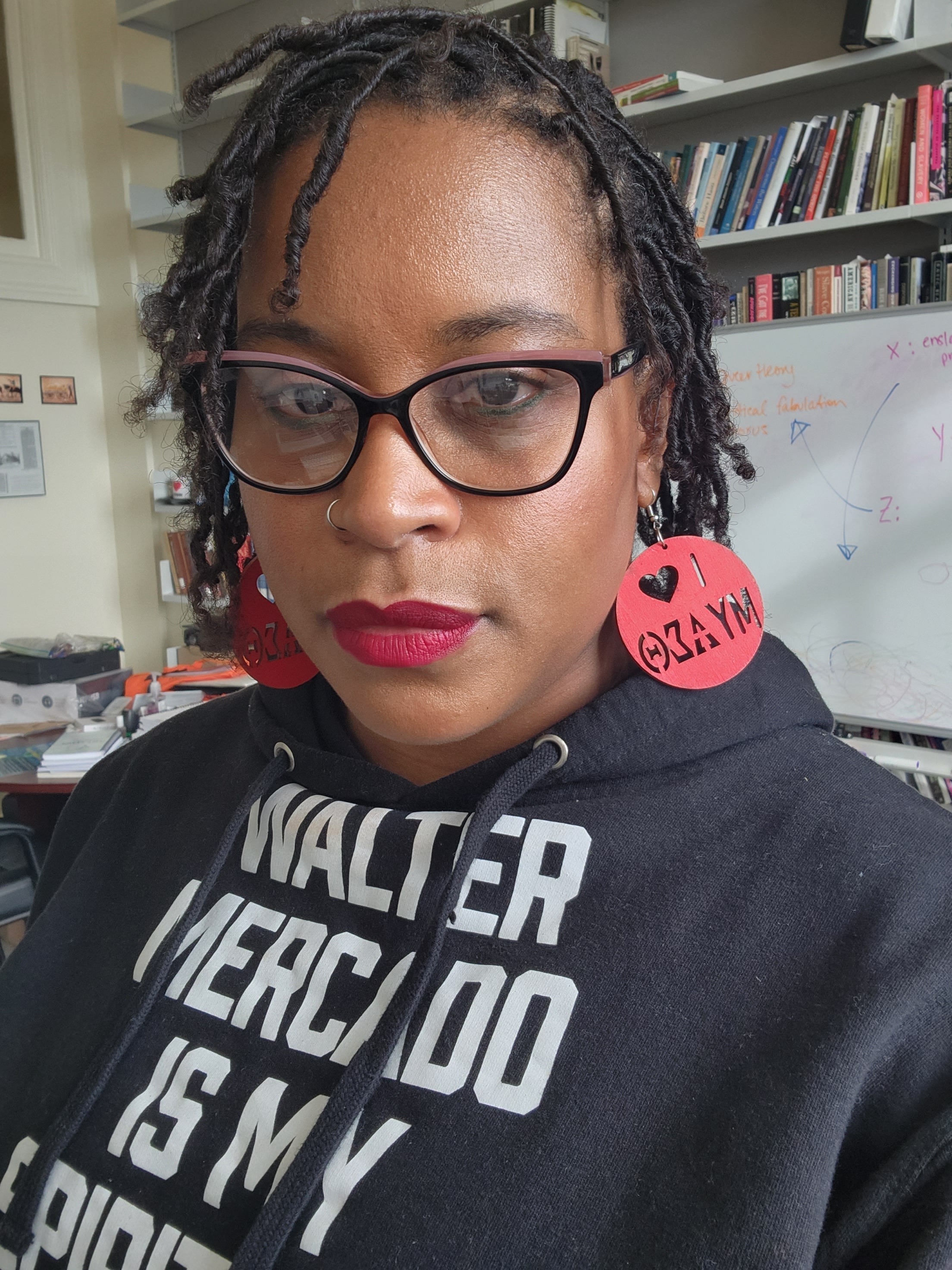
Jessica Marie Johnson
Founding Director, Editor-in-Chief
is an Associate Professor in the Department of History at the Johns Hopkins University. Johnson is a historian of Atlantic slavery and the Atlantic African diaspora. She is the author of Wicked Flesh: Black Women, Intimacy, and Freedom in the Atlantic World (University of Pennsylvania Press, August 2020), winner of the 2021 Lora Romero First Book Publication Prize of the American Studies Association, the 2021 Wesley-Logan Prize form the American Historical Association, the 2021 Rosalyn Terborg-Penn Prize for Outstanding Original Scholarship on Gender and Sexuality in the African Diaspora from the Association for the Study of the Worldwide African Diaspora, the 2021 Frank L. and Harriet C. Owsley Award for Best Book in Southern History from the Southern Historical Association, the 2020 Kemper and Leila Williams Prize for Louisiana History, the 2020 Berkshire Conference of Women Historians First Book Prize, the 2020 Rebel Women Lit Caribbean Readers’ Award for Best Non-Fiction Book, an Honorable Mention for the 2021 Pauli Murray Book Award from the African American Intellectual History Society, and a finalist for the Frederick Douglass Book Prize from the Gilder-Lehrman Institute.
Johnson is an internationally recognized digital humanist. Johnson is the Director of LifexCode: Digital Humanities Against Enclosure and Senior Research Associate with the Center for the Digital Humanities at Johns Hopkins University. Johnson is PI of Black Beyond Data, a Black studies computational and social sciences lab, with co-PIs Kim Gallon and Alexandre White. Alongside Dr. Yomaira C. Figueroa, Johnson also co-directs the Diaspora Solidarities Lab, a Mellon-funded multi-university initiative applying Black feminist methodologies to collaborative scholarship. Johnson’s essay, “Markup Bodies: Black [Life] Studies and Slavery [Death] Studies at the Digital Crossroads” is widely recognized as a ground-breaking intervention in the fields of Black studies, digital humanities and data science. Johnson is co-editor with Lauren Tilton and David Mimno of Debates in the Digital Humanities: Computational Humanities. She is guest editor of Slavery in the Machine, a special issue of archipelagos journal (2019) and co-editor with Dr. Mark Anthony Neal (Duke University) of Black Code: A Special Issue of the Black Scholar (2017).
Her work has appeared in Slavery & Abolition, The Black Scholar, Meridians: Feminism, Race and Transnationalism, American Quarterly, Social Text, The Journal of African American History, the William & Mary Quarterly, Debates in the Digital Humanities, Forum Journal, Bitch Magazine, Black Perspectives (AAIHS), Somatosphere and Post-Colonial Digital Humanities (DHPoco) and her book chapters have appeared in multiple edited collections.

John Abrahams
Lead Engineer, Digital Infrastructure Team
is a software engineer in the Digital Research and Curation Center within the Sheridan Libraries at Johns Hopkins University. He has worked on several digital humanities projects in his time at JHU including the Archaeology of Reading and the Digital Library of Medieval Manuscripts, and the Roman de la Rose Digital Library. John is currently helping the Keywords for Black Louisiana team as well as working on the JHU Public Access Submission System and providing software development support to the Sheridan Libraries.

Jonathan Baynes
Technical Consultant, Digital Infrastructure Team
A veteran of the U.S. Army, Jon served as an intelligence analyst from 2005 to 2009, receiving multiple awards and commendations for his service. Since then, he has been a consultant for the Department of Defense, Fortune 500 Companies, and leading academic institutions. Jon holds a M.S. in Data Science from the University of Virginia School and a B.S. in Information Systems & Technology from Old Dominion University.
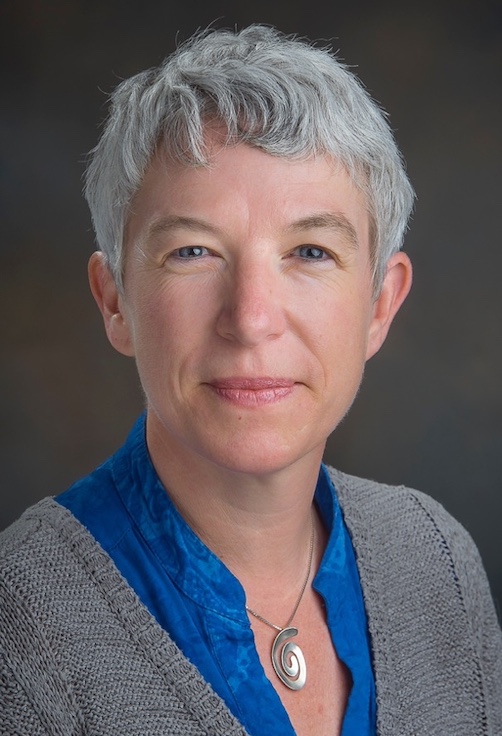
Jennifer Spear
Subject Matter Expert, Editorial Team
is an Associate Professor of History at Simon Fraser University and previously taught at the University of California, Berkeley; Dickinson College; Macalester College; and the University of Minnesota. Dr. Spear’s research expertise includes early North American history; gender & sexuality; and comparative colonization, slavery, and race.
Spear’s first book, Race, Sex, and Social Order in Early New Orleans (Johns Hopkins Press, 2009), is a critical contribution to the study of race and gender in Louisiana colonial history. In it, she brings together archival evidence from three different languages and the most recent and respected scholarship on racial formation and interracial sex to explain why free people of color became a significant population in the early days of New Orleans and to show how authorities attempted to use concepts of race and social hierarchy to impose order on a what they decided to be was a disorderly society. She recounts and analyzes the major conflicts that influenced New Orleanian culture: legal attempts to impose racial barriers and social order, political battles over propriety and freedom, and cultural clashes over both place and progress. This research challenges formerly prevailing academic assumptions and moves the racial formation away from cultural and political discourses toward social histories.
For her impact on the field, Dr. Spear is the winner of the 2009 Kemper and Leila Williams Prize in Louisiana History from the Historic New Orleans Collection and the Louisiana Historical Association.
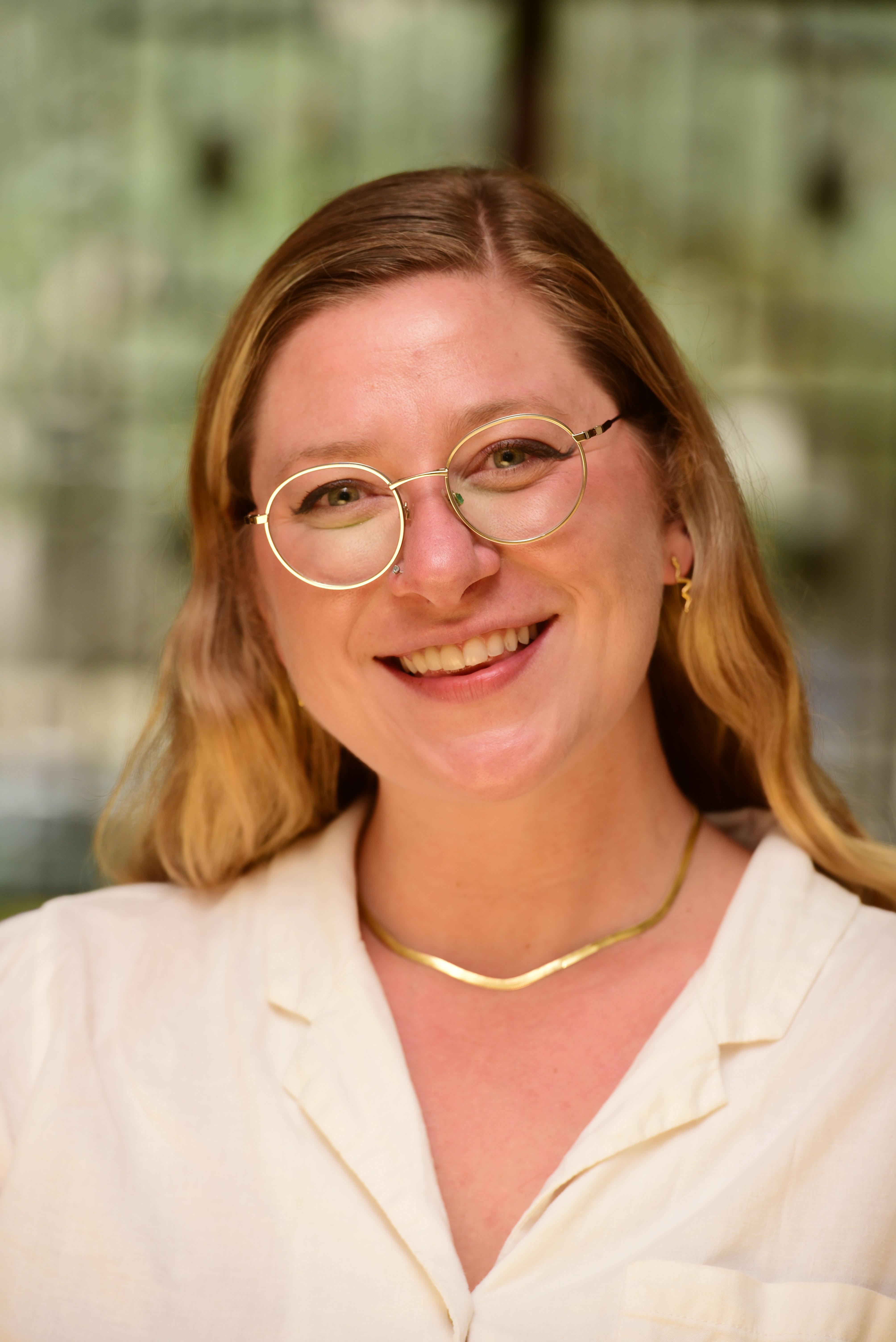
Kaillee Coleman
Associate Editor, Spanish Language Team
is a PhD candidate in the joint Latin American Studies and Art History program at Tulane University in New Orleans, where her research focuses on contemporary Caribbean art and cultural production – with special emphasis on the Black Atlantic and Diaspora Studies. She earned a M.A. in Latin American Studies from Tulane and holds undergraduate degrees in Art History and Interdisciplinary Art (dual emphasis in Visual Art and Theatre) from Seattle University. From 2021-2022, Kaillee was the recipient of a U.S. Dept. of Education Foreign Language and Area Studies (FLAS) Fellowship in Haitian Creole. In 2022-2023, she was the sole recipient of the William J. Griffith Award for an Outstanding Graduate Student Instructor in Latin American Studies, awarded by the Stone Center for Latin American Studies at Tulane University.
Kaillee works as an Associate Editor on the Spanish Language Team for the Keywords Project; additionally, she works as a curatorial assistant at the Newcomb Art Museum and as an archival assistant and metadata specialist for the Stone Center for Latin American Studies. Kaillee’s PhD dissertation, entitled “When I Am Not Here, Estoy Allá: Visualizing Expansive Space-Time in Caribbean Diasporic Memory,’’ places the work of five prominent Caribbean diasporic artists–María Magdalena Campos-Pons, La Vaughn Belle, Firelei Báez, Alberta Whittle, and Deborah Jack–in direct conversation with each other, tracing a thread of multivalent memory keeping.
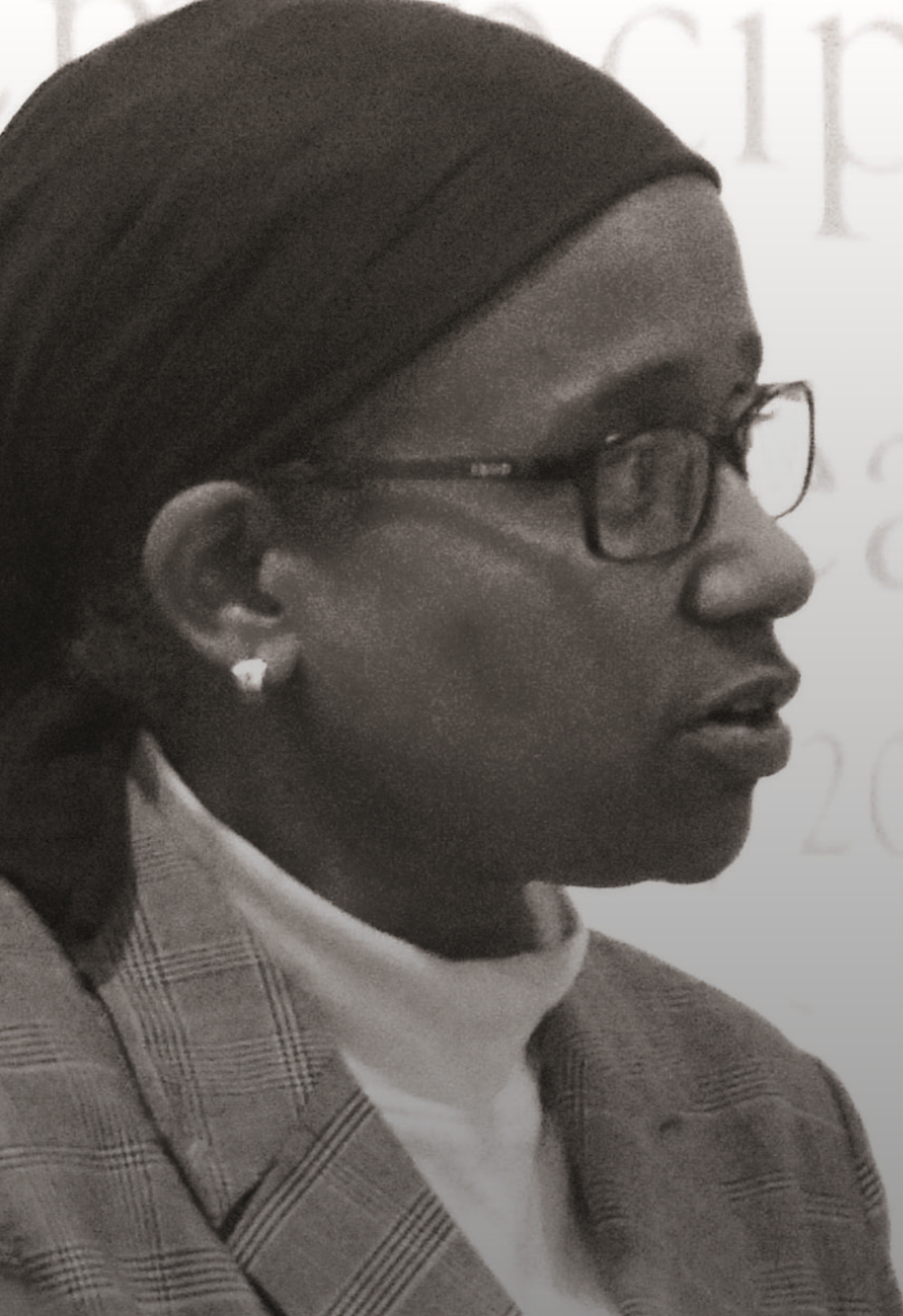
Laura Rosanne Adderley
Community Engagement Team Member
is Associate Professor of History at Tulane University in New Orleans where she specializes in the History of the African Diaspora; the Atlantic Slave Trade, Black Enslavement in the Americas, Caribbean History & African-American History. She holds a B.A. in History and Latin American Studies from Yale University and a Ph.D. in History from the University of Pennsylvania. Her research focuses the comparative history of Black enslavement, particularly during the 19th century, and the processes related slave trade abolition and emancipation. Most of her research has concerned British slave trade suppression and the Africans affected by it. However, because of the nature of the 19th-century Atlantic slave trade, this research has various transnational components across multiple colonial and geographic boundaries, including most significantly interaction between the British and Spanish colonized Caribbean and North America. She is author of the 2006 book “New Negroes from Africa”: Slave Trade Abolition and Free African Settlement in the Nineteenth-Century Caribbean. Her current book project is tentatively entitled Aduma’s Colonial Archive: African Social Networks and Caribbean Abolition. Her most recent publication is a co-authored article with Sharla Fett entitled “Slave Trade Refugees and Imperial Agendas” in a 2022 edited volume on Post-Coloniality and Forced Migration with Bristol University Press. At Tulane, Professor Adderley is affiliated with the Africana Studies Program, the Stone Center for Latin American Studies. She also serves on the board of the Amistad Research Center and, with Nell Bolton, co-directs a public history project related to the life and legacy of African American educator and reformer, Frances Joseph Gaudet.

Margaret Burri
Sheridan Libraries Research Liason, Research Team
is an Associate Director at the Sheridan Libraries at Johns Hopkins University. She works with two amazing teams of research librarians, curators, and archivists to support faculty and students in their research, teaching, and learning. Prior to joining Hopkins, she served as Deputy Director of MedChi, The Maryland State Medical Society, where she oversaw a medical library and history of medicine collection, and managed various health policy initiatives. She has also held curatorial positions at the Maryland Center for History and Culture, and the D.C. History Center.
Her research focuses on how faculty incorporate primary sources into their research and teaching, as well as the impact that working with primary sources has on undergraduate work. She is looking forward to exploring these questions with the research corpus generated by K4BL.
She received her B.A. in Humanistic Studies from Johns Hopkins University, and her M.A. in History and a certificate in museum studies from the University of Delaware. She also holds a master’s in library science from the University of Maryland.
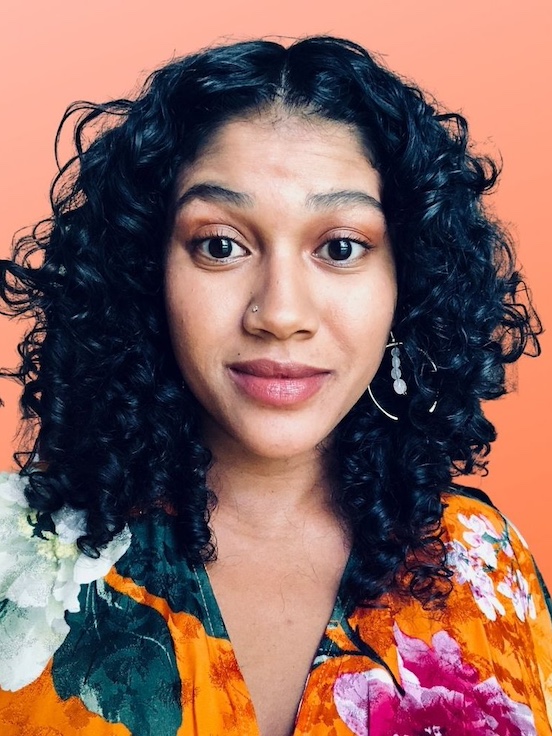
Nadejda Webb
Assistant Director, LifexCode
is the Assistant Director of LifexCode: Digital Humanities Against Enclosure and a Visiting Assistant Professor in the Center for Digital Humanities at Johns Hopkins University, where her teaching and research interests include 20th and 21st-century African-American and Post-Colonial literature and digital humanities, imaginaries, and representation.
Webb’s research has been supported by the Andrew W. Mellon Foundation, the Social Science Research Council, Columbia University’s Center for Oral History, the USC Annenberg School for Communication and Journalism, and Vanderbilt University. She received her joint-Ph.D. in English and Comparative Media Analysis and Practice from Vanderbilt and her BA in English Language and Literature from CUNY Hunter College.
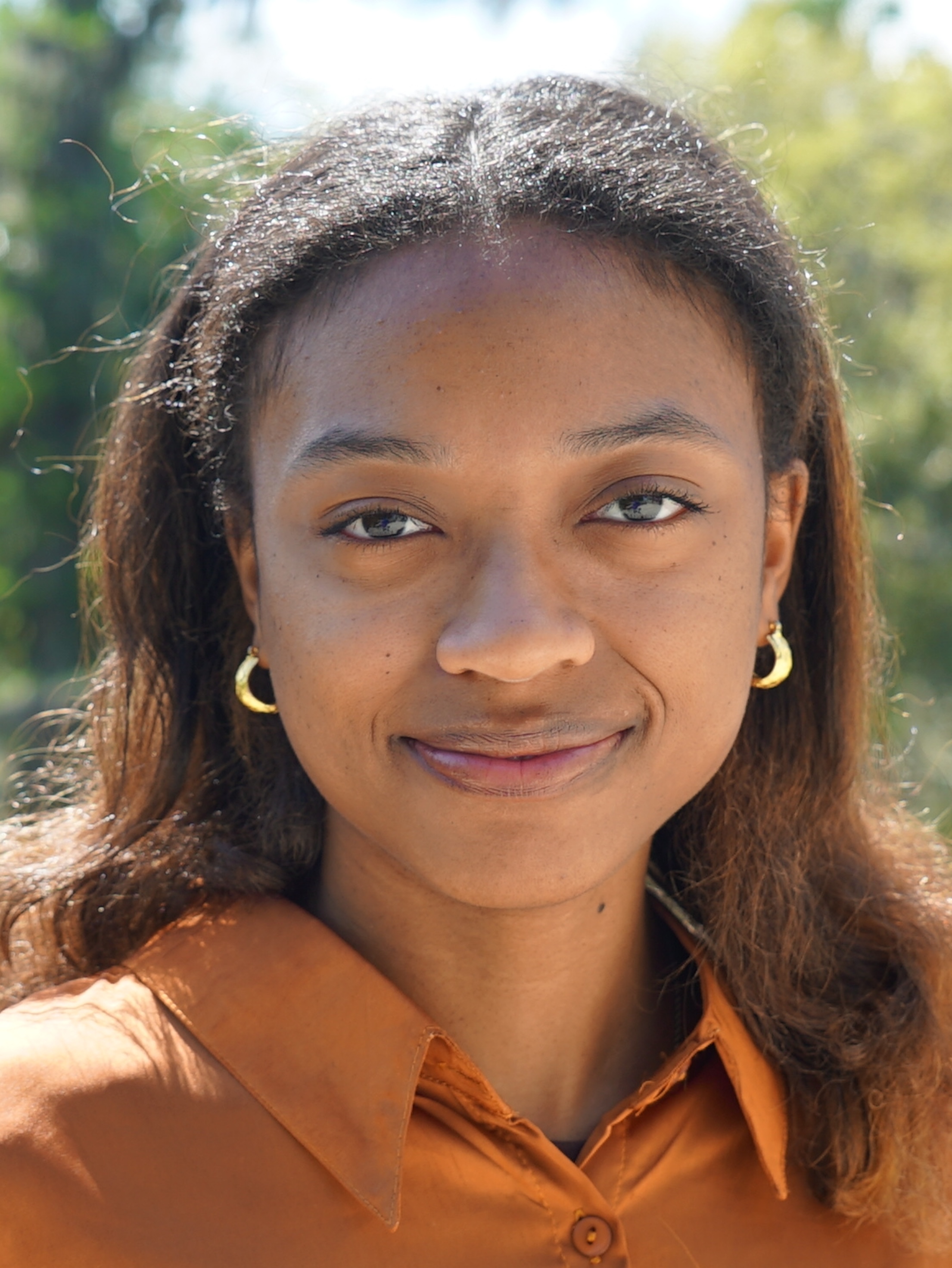
Nyla Williams
Digital Editorial Assistant
is a scholar, researcher, and rising senior at Xavier University of Louisiana. Majoring in History with a minor in Art Management, Nyla has a deep passion for preserving and interpreting Black American historical narratives. She is a Student Research Assistant at the Xavier University Archives and Special Collections, where she processes, preserves, and catalogs collections. Nyla also re-established and is the current president of the Xavier University History Club. Under her leadership the club has become partners with local archives and museums to introduce students to careers in public history.
Nyla is a member of LifexCode in both the Keywords for Black Louisiana project and the Diaspora Solidarities Lab. Nyla has been an assistant editor to the Keywords project where she has revised the titles of historical documents to reflect appropriate 21st century language descriptors of marginalized people. In the Diaspora Solidarities Lab, she has worked as a Solidarity Fellow within the microlab Black Louisiana History Incubators which preserves Black Louisiana history by promoting it to Generation-Z audiences.
Occasionally, Nyla provides freelance research, and has provided services to book authors, documentary directors, and fortune 500 companies. Her most recent project was in partnership with the Southern University at New Orleans history department and Louisiana Public Broadcasting to produce the forthcoming film Pontchartrain Park Pioneers, a documentary about the history of one of New Orleans’ wealthiest Black neighborhoods. Looking ahead, Nyla plans to pursue a Master’s degree in Library Information Science. Her goal is to continue safeguarding cultural heritage and promoting scholarly inquiry through archival practices.
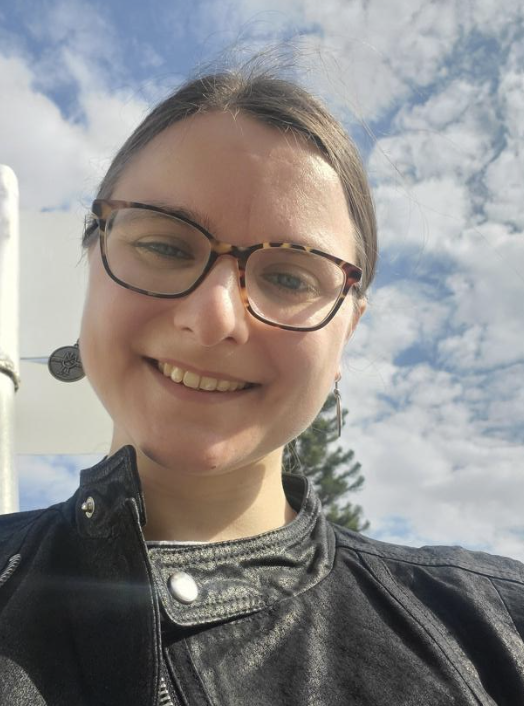
Pelia Werth
Assistant Editor, French Language Team
is a PhD candidate in the Department of History at the Johns Hopkins University and a member of the French Language Team. She received her BA in English and French from the University of Oxford and an MA in Medieval Studies from Leeds University. As part of Keywords for Black Louisiana, Pelia applies her linguistic expertise to particularly difficult French documents. Her research interests include interfaith encounters, religious experiences (including those of women and minority groups), and perceptions of sacred space in medieval Europe and the Middle East. Her doctoral research focuses on pilgrimage sites in medieval Syria and Palestine (c. 1050-1300) that were venerated by members of multiple religious communities, and what interactions between visitors to these sites reveal more broadly about interfaith relations in the “Holy Land” during this period.
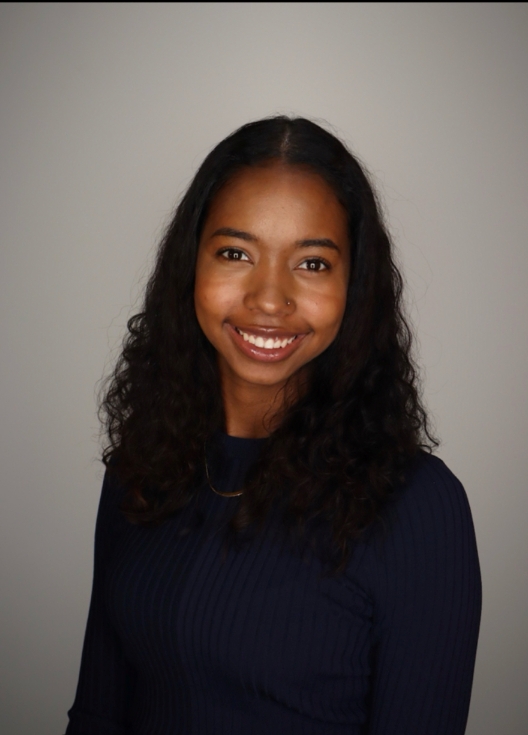
Skylar Jones
Digital Assistant for Editorial Markup
is a New Orleans native and currently undergraduate student attending the University of Notre Dame. Skylar is obtaining her degree in Gender Studies with two minors: one in Global Health and the other in Health Humanities and Society. Skylar is a member of the Digital Team for Keywords for Black Louisiana. Skylar is involved in various activities on campus, such as being a researcher for the Culture of Medicine Lab, researching issues of Obstetric Violence. Outside the classroom, Skylar enjoys spending time with friends, reading and being outdoors.
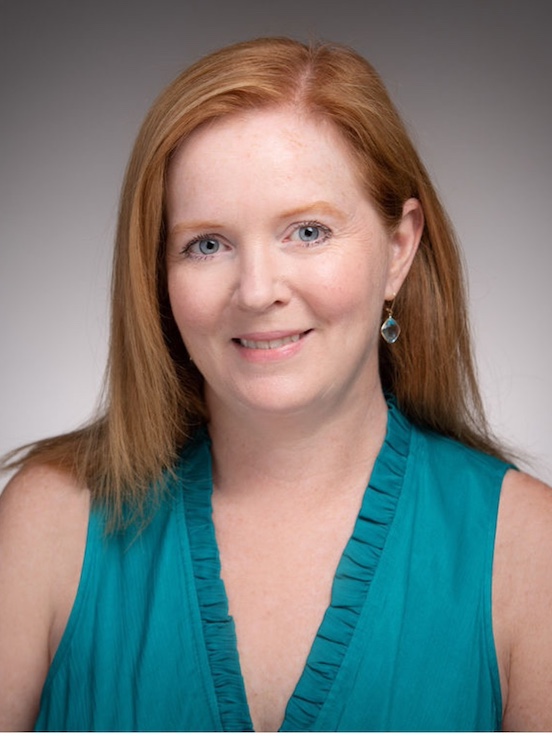
Sophie White
Subject Matter Expert, Editorial Team
is the Joseph and Elizabeth Robbie College Professor and Professor of American Studies. She also holds Concurrent Appointments as Professor of Africana Studies, of History, and of Gender Studies, and is a Fellow of the Nanovic Institute for European Studies, the Klau Institute for Civil and Human Rights, and the Institute for Race and Resilience at the University of Notre Dame.
She is an historian of early America with an interdisciplinary focus on cultural encounters between Europeans, Africans and Native Americans, and a commitment to Atlantic and global research perspectives.
Her newest book, Voices of the Enslaved: Love, Labor, and Longing in French Louisiana (Omohundro Institute of Early American History and Culture/University of North Carolina Press, 2019, 2021) foregrounds an exceptional set of source material about slavery in French America: court cases in which enslaved individuals testified and in the process produced riveting autobiographical narratives.
Voices of the Enslaved has won 7 book prizes, including the 2020 James A. Rawley Book Prize from the American Historical Association, the Association for the Study of the Wordwide African Diaspora’s Terborg-Penn Book Prize in Gender & Sexuality, and the Frederick Douglass Book Prize for most outstanding book on slavery published in 2019.
Her first book, Wild Frenchmen and Frenchified Indians: Material Culture and Race in Colonial Louisiana was published with the University of Pennsylvania Press/McNeil Series in Early American Studies in 2012, and was a finalist for the Berkshire Conference of Women Historians Book Prize.
With Trevor Burnard, she has co-edited a volume on slave testimony in French and British America 1750-1848 (Routledge, 2020). She is completing a digital humanities project, Hearing Slaves Speak in Colonial America, that will launch in Spring 2022 with the Omohundro Institute and is collaborating on a number of other DH projects on race and slavery.
She has two new book projects. One, His Master’s Grace, is a study of slavery and extra-judicial violence. The other, Strangers Within, examines redhead myths, juxtaposing cultural history with the new genetic discoveries and biological implications of red hair, a project that falls within her purview as a scholar of appearance and of cultural constructions of otherness. She is signed to the Dunow, Carlson & Lerner Literary Agency for this book.
In addition, White is the author of over twenty articles and essays, in journals such as The William and Mary Quarterly, Gender and History and The Winterthur Portfolio.
Among other grants and awards, White was a recipient of fellowships from the National Endowment for the Humanities for Wild Frenchmen, Voices of the Enslaved, and Strangers Within.
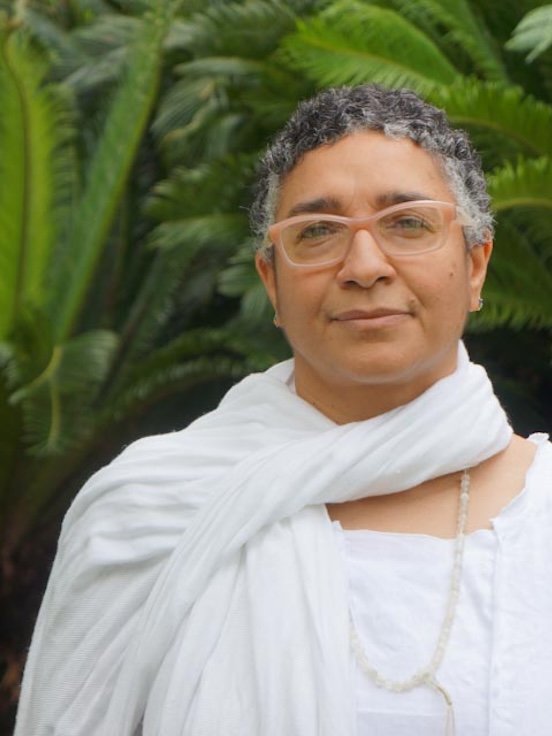
Wendy A. Gaudin
Community Engagement Team Member
is an historian and a writer whose interdisciplinary work centers Southern-descended, mixed-heritage and mixed-race populations and histories. Gaudin writes across genres, including creative nonfiction, autoethnography, oral history, narrative poetry, and personal narrative. Because she writes about people who are often historically dismissed or erased, thus whose historical record is incomplete, Gaudin supplements archival resources with the tools of speculative or conjectural history to construct the lives of her ancestors and those who occupy a similar social category. As a mixed-heritage Louisiana Creole of Color whose elders migrated to California in the first half of the twentieth century, Gaudin is deeply moved, shaped, and inspired by her family’s and expansive community’s story, which embodies themes such as race and hybridity, skin color and ancestry, migration, family, and memory. Her first monograph, Sunset Limited: An Autobiography of Creole (LSU Press, Spring 2025), straddles autoethnography and creative nonfiction, and establishes her voice as a diasporic Afro-Creole writer.

Zaria Sawdijah El-Fil
Digital Curation Fellow and Co-Project Manager
is a dramaturg, community organizer, and Ph.D. student in the Department of History at the University of Chicago. As a Brenda & Earl Shapiro Scholar, Zaria specializes in Atlantic slavery, the Spanish borderlands, early modern capitalism, political theory, and maritime migration. With LifexCode, Zaria works as a Digital Curation Fellow and Co-Project Manager for Keywords for Black Louisiana.
Founding Keywords

Olivia Barnard
Associate Editor, French Language Team (2022-2025)
is an Assistant Professor in the Department of History at the University of Florida. Olivia researches the history of the Gulf South in early America, focusing on the history of slavery and the Atlantic slave trade. She received her PhD in History from Johns Hopkins University. Her dissertation examined the history of what’s known as the last slave voyage to arrive in French-controlled Louisiana. As French Lead (2020-2022) and Associate Editor (2022-2025) for the French team of K4BL, Olivia worked on the transcriptions and translations of 18th century French colonial records. Barnard joined Keywords fro Black Louisiana in 2020.
Leila Blackbird (née Garcés)
Senior Research Editor (2022-2024)

Ellie Palazzolo
Digital Curation Fellow and Co-Project Manager (2021-2024)
is Southern Foodways Alliance Assistant Professor of Southern Studies and Assistant Professor of History at the University of Mississippi. Ellie is a historian and food studies scholar with a focus on labor and consumer cultures in the nineteenth- and twentieth-century United States. She earned a PhD in History from Johns Hopkins University in 2025. A founding member of Keywords for Black Louisiana, Ellie served as Digital Lead (2020-2021), Digital Curation Fellow (2021-2022) and then Co-Project Manager and Digital Curation Fellow (2022 to 2024). Working with Keywords has sparked ongoing interests in critical, post-colonial, and Black DH applied to archiving, textual editing, sustainable design, and pedagogy.
Keywords Alumni

Abigail Vázquez Rosario
Digital Assistant for Editorial Markup
is originally from Mayagüez, Puerto Rico, and is a Ph.D. student on the Communication Science and Social Cognition track at the University of Maryland. She received her BA from Marymount University and has previous professional experience in her field of study, including as a Communication Assistant at Marymount and as an Intern at the U.S. Department of Agriculture. Her research interests focus on Intercultural Communication, Media Studies, and Latinx Studies. She has also conducted research on journalism, immigration, Black & Indigenous representation in mass media and performing arts, gender studies, and mental health. Abigail is interested in researching more on cultural identity and representation inspired by her own experiences as a Puerto Rican woman.
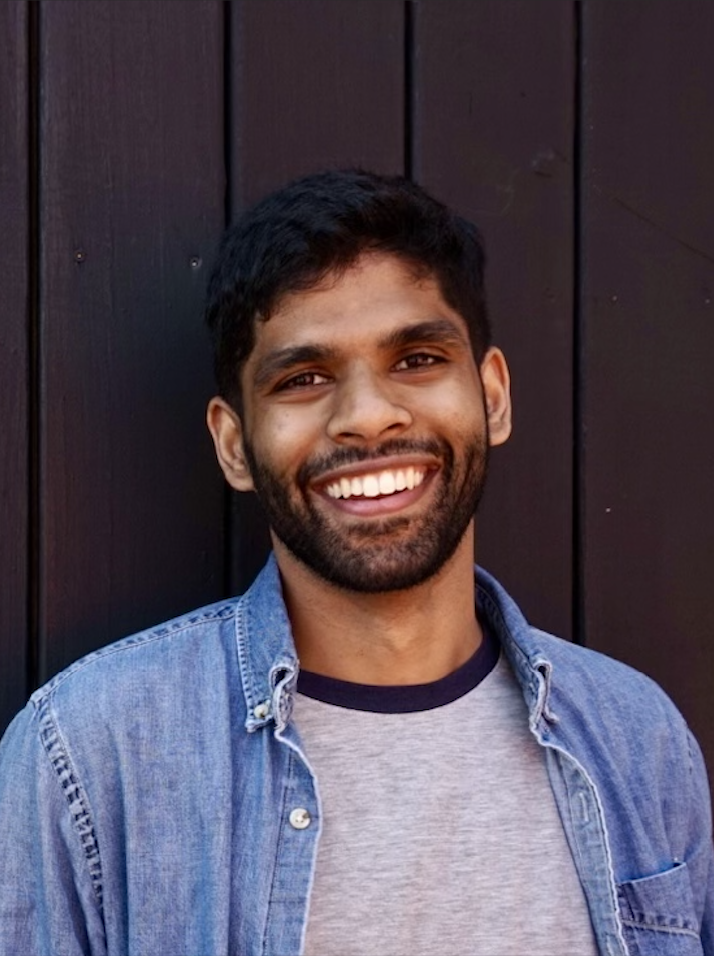
Amrish Nair
Transcriber and Translator, Spanish Language Team
is a doctoral student in the Department of History at Johns Hopkins University and is a translator/transcriber for the Keywords for Black Louisiana project. He researches the history of religious difference, religious encounters, and pre-modern structures of racial difference in early modern Spain and the Mediterranean Sea. Currently he is interested in interrogating the social and theological category of ‘apostasy,’ especially as it related to cristiano viejos (old Christians) who were captured by Muslim corsairs, coerced into converting to Islam, and sought reintegration back into Spanish Catholic society from the Spanish Crown and Inquisition. Amrish is also a member of the 2023-2024 cohort for the Stern Center’s Graduate Student Curatorial Fellowship program.
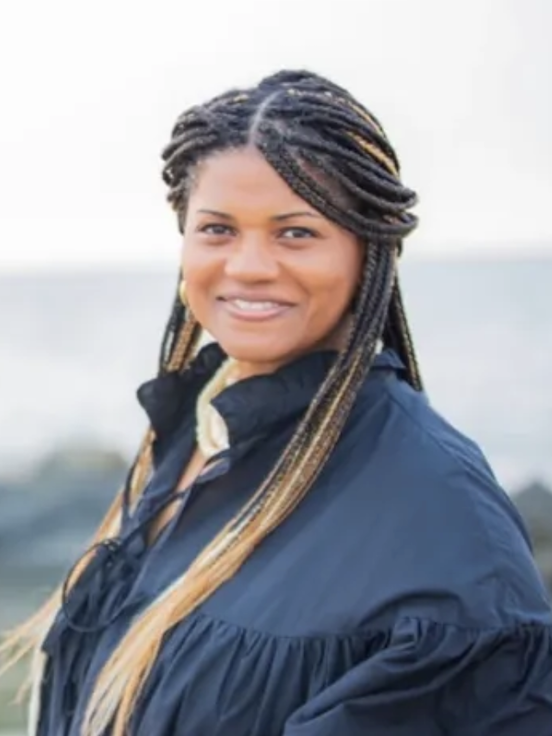
Eola Dance
Associate French Editor and Community Engagement Specialist
is an ethnohistorian with more than 20 years of federal experience in history, art, culture, and preservation. Currently serving as the President & CEO of the Montpelier Foundation, Eola is also the Co-Founder of Kinfolkology. In addition, she previously served as the Superintendent of Fort Monroe National Monument as part of the National Park Service. Eola has worked at the intersection of race, gender, and class in research, historical and cultural preservation, and the narrativization of descendant stories since 2001.
Eola uses arts-based approaches in discussing difficult topics in social history significant to underrepresented communities with specialized focus on Indigenous and African American experiences. She received her BA in History from Southern University A & M College in 2001, an MA in Historic Preservation from Savannah College of Art & Design in 2015, and a graduate certificate in Environmental Policy from the George Washington University in 2017. A 2014 attendee to Gilder Lehrman Center for the Study of Slavery, Resistance and Abolition at Yale University’s Public History Summer Session, she has also developed programs and worked with communities in researching the Underground Railroad since 2001.
Currently a PhD candidate at Howard University, Eola’s area of concentration is US History with a minor in African Diaspora and Public History.

Essah Torey Cozett Díaz
Digital Assistant for Editorial Markup
is a Liberian-American poet, digital humanist, and community organizer. She completed her Ph.D. at the University of Puerto Rico, Río Piedras in April 2024. Her research is rooted in African migration, memory, oral traditions, and spiritual practices. Díaz is currently a senior research fellow of the Taller Entre Aguas, a micro lab of the Diaspora Solidarities Lab (DSL), a multi- institutional Black feminist digital humanities partnership. She is also the editor of the Archive Liberia Anthology. Díaz served as the lead community organizer of the Cultural Voices Summit with the Women of Color Initiative, and a 2022 Pathways intern with the Office of Digital Humanities at the National Endowment for the Humanities (NEH). Díaz chaired the Caribbean Without Borders Graduate Student Conference from 2019-2022 and, in 2016, she founded Hermanas del Agua, the Puerto Rican chapter of the SisterCARE Alliance, to create a safe space for women and non-binary people to practice strategic self-care. She is also an alumna of the Obsidian Foundation and the Young Scholars of Liberia. Her writing has appeared in several international print and online publications.
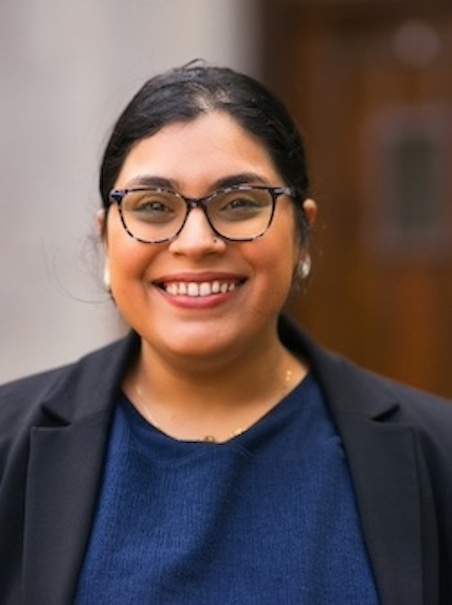
Kiana González Cedeño
Digital Assistant for Editorial Markup
is an Assistant Professor of Comparative Race and Ethnic Studies at Texas Christian University. She received her BA in Spanish Language, Literature, and Culture from the University of North Florida with a minor in American Sign Language and Deaf Studies; her MA in Hispanic Literature from Michigan State University; and her Ph.D. in English at Michigan State University with certificates in Chicano/Latino Studies, Caribbean and Latin American Studies, and in Women and Gender Studies. Her dissertation project, “Entre Llantos: Literary and Embodied Representations of Lamentation in Puerto Rican Boricua Popular Culture” translocates theoretical frameworks around lamentation from the Ancient Greek and Mediterranean to a modern Caribbean context to reveal how Puerto Ricans have resisted and rebelled colonization through lament. As a Solidarity Fellow in the Mellon Diaspora Solidarities Lab, she is interested in the ways women mobilized their communities after ecological disaster and how they author restoration and survival. Her research interests include Puerto Rican/Latinx Popular Literature and Culture, Women of Color/Third World Feminism, Critical Race Theory, and Ethnic Studies. She was also Research Fellow with the Mellon Bridging the Divides grant at CENTRO: The Center for Puerto Rican Studies.

Laura Konisek
LxC Digital Dissertation Fellow
is a PhD candidate at the Johns Hopkins University in the Department of History, studying the early Republic. On the Keywords for Black Louisiana Project, Laura advises the digital assistants, provides specialized training on TEI coding and markup, and assists with ensuring digital infrastructure. She is also a member of the Research Team, serving as a liaison between Digital and Research operations. Along with Professors Gil, McGinn, and Johnson, Laura helps teach DH 101, working with students on the basics of minimal computing and building static sites. Prior to attending JHU, she earned her BA from the University of California, Los Angeles, and her MA in World History and Culture from King’s College London.

María Burgos Carradero
is a Team Lead Manager and Solidarity Fellow with the Diaspora Solidarity Lab and a recent graduate of Michigan State University where she earned a Master’s degree in English Literature. María completed her undergraduate studies at the University of Puerto Rico, where she dual-majored in Cellular Molecular Biology & Hispanic Studies. Her interests range from contemporary literary works of Afro-Caribbean poets and writers interested in imagining new worlds and inventing a self beyond colonial doctrines. She is pursuing graduate studies to explore the mapping of decolonial feminism further in Caribbean literature by Black femme writers like Anjelamaría Dávila. Her favorite scholars include Audre Lorde, Octavia E. Butler, Ursula K. Le Guin, Angela Y. Davis, María Lugones, Chela Sandoval y Sylvia Wynther, and many others who have contributed to both the creative creation and methodological mappings of decolonial feminist manifestations. Additionally, she is interested in becoming a Literature Professor and making the literary arts accessible through public libraries, both physical and online, and inclusive creative writing workshops. María hopes to provide a sense of ownership of the writing craft for anyone interested and gestate independent publication of literary works.

Maya Hogarth
Associate Editor, French Language and Research Teams
is a recent MA graduate in Museum Studies from Johns Hopkins University and currently is an Experiential Learning Educator collaborating with DC-area institutions, including the Smithsonian. In addition to her Master’s degree, Maya holds a BA in History from Towson University, with minors in Museum Studies and French, and a Post-Baccalaureate Certificate in Digital Curation. As a descendant of Haitian Creoles, Maya’s work focuses on the history and lived experiences of the African diaspora within the francophonie. She held a lead role in Diaspora Solidarities Lab and was a Research Fellow for the Keywords Project, serving as an Associate Editor for the French Language Team and as a core member of the Research Team. Her contributions to Keywords hold a vital place in the project.

Yulesys Ortiz-Jerez
Transcriber and Translator, Spanish Language Team
is currently pursuing a dual Bachelor’s degree in Hispanic Studies and Secondary Education in the Spanish Language at the University of Puerto Rico, Cayey. Throughout her university career, Yulesys has actively participated in various research projects and artistic initiatives of great impact, including her role as a Solidarity Fellow with the Diaspora Solidarity Lab at Michigan State University. Her interests include antiracist education, digital humanities, decolonial studies, content creation, multimedia art projects, Latin American and Caribbean literature, Puerto Rican and Dominican diasporic identity and lived experiences, Afro-Caribbean culture, histories of migration, and community-based projects.